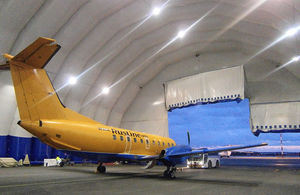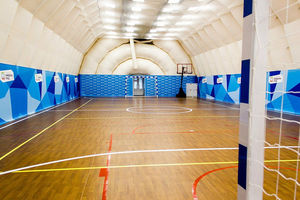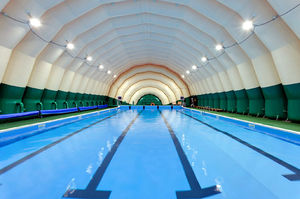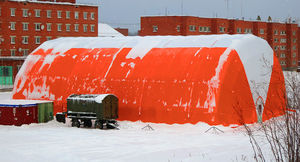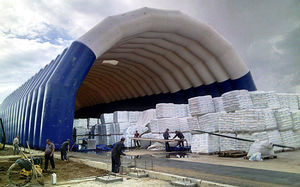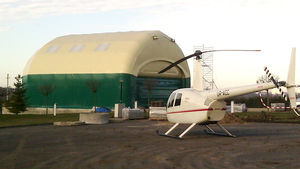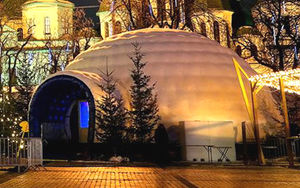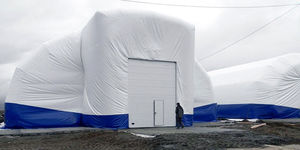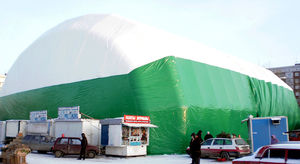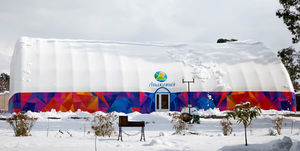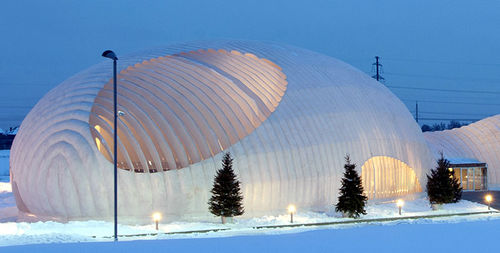
- Company
- Products
- Catalogs
- News & Trends
- Exhibitions
Office inflatable structure








Add to favorites
Compare this product
Characteristics
- Market
- for office
Description
Inflatable buildings consist of closed inflatable modules filled with compressed air which provides them with shape and makes them sufficiently rigid. Standard inflatable modules are oftentimes arch shaped. However, due to inflatable modules design the shapes of inflatable buildings may be cusomised.
Inflatable buildings combine the advantages of traditional construction and mobile quick assembly thus leading to reduced construction costs. They do not need gateway systems, These shelters boast a minimum weight and size when packed, ensuring mobility and easy embarkation. Assembly/disassembly requires little time some of them can be erected in as little as one hour, depending on the building's footprint.
Inflatable buildings are easy to operate under wide range of climate condition. In warmer months outside air comes through window and door openings. During winter times the preset temperature range is maintained by installed heating system.
Inflatable buildings represent am ideal solution for temporary and permanent trade pavilions, mobile cinema and concert halls, mobile circus domes, EMA (Emergency Management Agency) warming tents, equipment sheds, temporary housing for work crews, warehouses etc.
Inflatable office building. Inflatable building with covering area of 1400 m2.
Covering area, m2 - 1400
Fastening system - set
Air supply system - set
Exit, item - 1
Emergency exit, item - 1
Catalogs
No catalogs are available for this product.
See all of HOLSTROY‘s catalogsRelated Searches
- Tensile structure
- Tensile roof
- Tensile structure with PVC membrane
- Metal frame tensile structure
- Commercial inflatable structure
- Tensile public area structure
- Special event inflatable structure
- Tensile athletic field structure
- Tensile shelter
- Tensile special event structure
- Stadium tensile structure
- Tensile school structure
- Transparent tensile structure
- Tensile playground structure
- Sports facility inflatable structure
- Playground inflatable structure
- Tennis court air supported structure
- Public space inflatable structure
- Hotel tensile structure
- Retractable tensile structure
*Prices are pre-tax. They exclude delivery charges and customs duties and do not include additional charges for installation or activation options. Prices are indicative only and may vary by country, with changes to the cost of raw materials and exchange rates.




